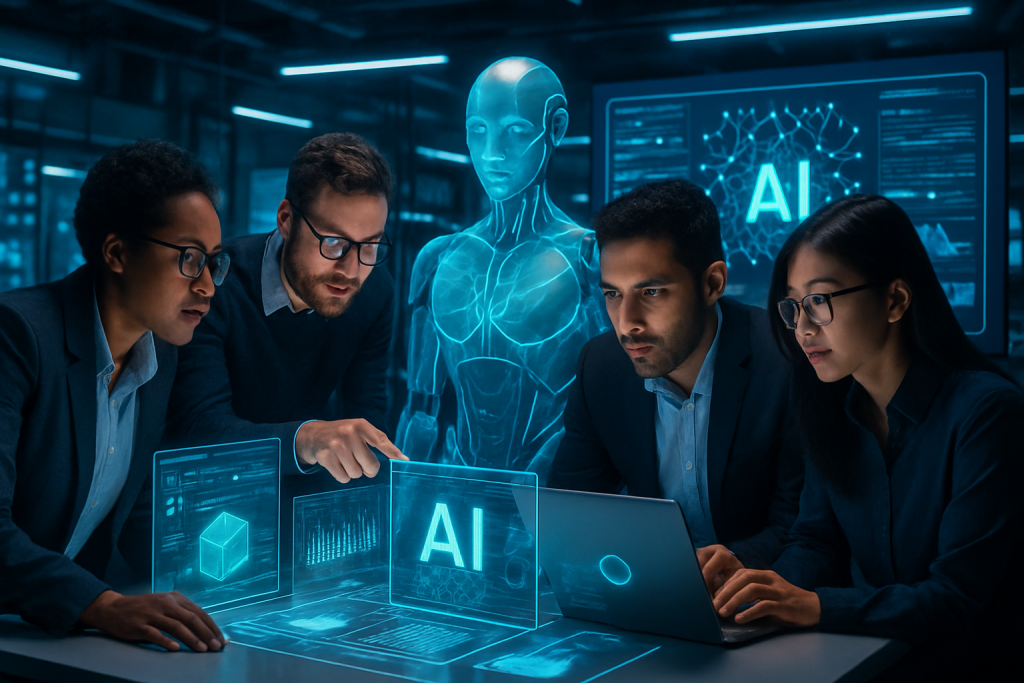Let’s be honest, the AI race is less a marathon and more a demolition derby. Every company is vying for the lead, smashing into each other with new models, groundbreaking architectures, and, most importantly, the brightest minds in the field. Yesterday, July 8th, 2025, Meta Platforms, once the undisputed king of social media, threw a serious elbow into the fray with the launch of its Superintelligence Labs. It’s a move that screams, “We’re not dead yet!” in a world increasingly dominated by the likes of OpenAI and Google’s DeepMind.
Remember when Facebook was just a place to awkwardly tag your friends in blurry photos from college? Those days are long gone. Meta’s been pouring resources into AI for years, trying to build the next big thing, the algorithm that understands us better than we understand ourselves. But lately, it’s felt like they’ve been playing catch-up. Llama 4, their latest large language model, didn’t exactly set the world on fire, and whispers of internal strife and talent drain have been circulating faster than a viral meme.
Enter Superintelligence Labs. This isn’t just a rebranding exercise; it’s a full-blown strategic pivot. Meta is betting big that a concentrated effort, led by top-tier talent, can catapult them back to the forefront of AI innovation. Think of it as their Avengers initiative, but instead of saving the world from Thanos, they’re trying to save themselves from irrelevance in the AI age.
The Dream Team
So, who are these AI superheroes Meta has assembled? The team is co-led by Alexandr Wang, formerly the CEO of Scale AI, a company that provides training data for AI models, and Nat Friedman, the former CEO of GitHub, the world’s leading software development platform. These are serious players, individuals who understand not just the theory of AI, but also the practical realities of building and deploying it at scale.
But the real fireworks come from the individuals they’ve poached from rival companies. We’re talking about names like Daniel Gross, a former leader at OpenAI, the very company that unleashed ChatGPT on the world. Then there’s Ruoming Pang, who was a key figure at Google, the company that practically invented search as we know it. Trapit Bansal, formerly of Apple, brings expertise in multimodal models, which are crucial for building AI that can understand and interact with the world in more than just text. And finally, Ji Lin, who comes from Anthropic, another leading AI safety and research company.
These aren’t just warm bodies; they’re seasoned veterans with a proven track record of building groundbreaking AI systems. They’re the equivalent of Tom Brady, LeBron James, and Serena Williams all joining the same team. The collective knowledge and experience they bring to Meta is staggering.
The Price of Genius
Of course, attracting this level of talent doesn’t come cheap. Rumor has it that Meta is throwing around compensation packages with bonuses up to $100 million. That’s right, eight figures just to say, “Welcome to the team!” It’s a bold move, a clear signal that Meta is willing to spend whatever it takes to win the AI arms race. It also raises questions about the economics of AI development. Is this the new normal? Will companies have to break the bank to attract and retain the best AI engineers and researchers?
Beyond the Hype: What Does It All Mean?
The launch of Superintelligence Labs has significant implications for Meta, the AI industry, and society as a whole. For Meta, it’s a chance to redefine itself as more than just a social media company. It’s an opportunity to build the next generation of AI technologies that will power everything from virtual reality experiences to personalized advertising. If they succeed, they could become the dominant force in the metaverse and beyond. If they fail, they risk becoming a footnote in the history of AI.
For the AI industry, it’s further evidence that the stakes are getting higher. The competition for talent is fierce, and the pressure to innovate is relentless. This could lead to faster progress in AI, but it also raises concerns about concentration of power. Will a handful of companies control the future of AI, or will there be room for smaller players and open-source initiatives?
From a societal perspective, Meta’s AI ambitions raise familiar ethical questions. How will these technologies be used? Will they exacerbate existing inequalities? Will they be used to manipulate or control people? These are questions that we need to grapple with as AI becomes more powerful and pervasive. It’s not enough to simply build these technologies; we need to think critically about their impact on humanity. We need to remember what Uncle Ben said to Peter Parker: “With great power comes great responsibility.”
The Future is Uncertain, But One Thing is Clear
Meta’s Superintelligence Labs is a gamble, a high-stakes bet on the future of AI. Whether it pays off remains to be seen. But one thing is clear: the AI revolution is just getting started, and the next few years will be crucial in determining who the winners and losers will be. So, buckle up, because it’s going to be a wild ride.
Discover more from Just Buzz
Subscribe to get the latest posts sent to your email.


